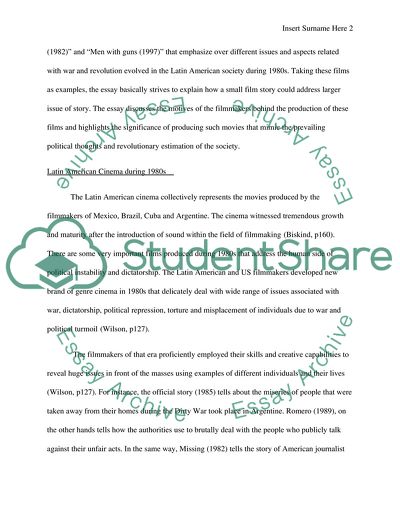Cite this document
(“Expression of Political Thoughts in Latin American Cinema 1980s Article”, n.d.)
Expression of Political Thoughts in Latin American Cinema 1980s Article. Retrieved from https://studentshare.org/politics/1730797-latino-salvador-and-innocent-voices-films-about-revolution-and-war-in-central-america
Expression of Political Thoughts in Latin American Cinema 1980s Article. Retrieved from https://studentshare.org/politics/1730797-latino-salvador-and-innocent-voices-films-about-revolution-and-war-in-central-america
(Expression of Political Thoughts in Latin American Cinema 1980s Article)
Expression of Political Thoughts in Latin American Cinema 1980s Article. https://studentshare.org/politics/1730797-latino-salvador-and-innocent-voices-films-about-revolution-and-war-in-central-america.
Expression of Political Thoughts in Latin American Cinema 1980s Article. https://studentshare.org/politics/1730797-latino-salvador-and-innocent-voices-films-about-revolution-and-war-in-central-america.
“Expression of Political Thoughts in Latin American Cinema 1980s Article”, n.d. https://studentshare.org/politics/1730797-latino-salvador-and-innocent-voices-films-about-revolution-and-war-in-central-america.


